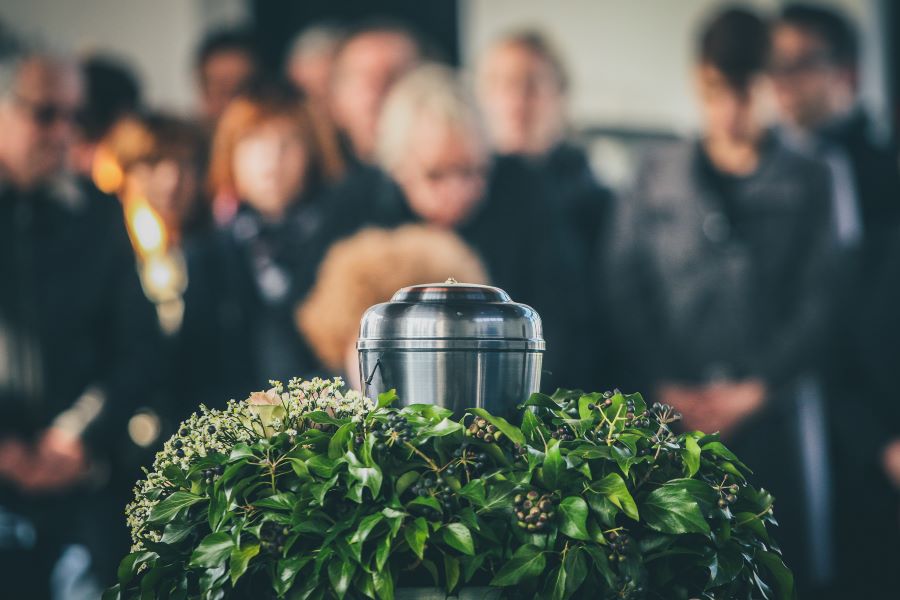Planning a Funeral: Essential Steps and Considerations
The loss of a loved one is a challenging and emotional time. Amidst grief, families must also navigate the complex process of planning a funeral. This article aims to guide you through the essential steps and considerations involved in organizing a meaningful farewell for your departed loved one.

During this time, locate any pre-arrangements or wishes the deceased may have left regarding their funeral. This information can guide your decisions and help ensure the service aligns with their desires. Additionally, consider appointing a family member or close friend to act as a point of contact for incoming calls and messages of condolence.
How do you choose a funeral home?
Selecting the right funeral home is a crucial decision in the planning process. Start by researching local funeral homes and reading reviews from other families. Consider factors such as the home’s reputation, range of services, and pricing transparency. It’s advisable to visit multiple funeral homes if time allows, as this can help you gauge the atmosphere and level of support provided.
When meeting with funeral directors, ask about their experience, available services, and how they can accommodate any specific cultural or religious requirements. Don’t hesitate to inquire about pricing and package options, as funeral costs can vary significantly. A reputable funeral home will be understanding of your needs and budget constraints, offering clear explanations of their services and associated costs.
What types of funeral services are available?
Funeral services can be tailored to reflect the life and wishes of the deceased, as well as the preferences of the family. Traditional funeral services typically include a viewing or visitation, followed by a funeral ceremony and burial or cremation. However, there are numerous alternatives to consider:
-
Memorial Service: A ceremony held without the body present, often after cremation has taken place.
-
Celebration of Life: A more upbeat event focusing on positive memories and the person’s accomplishments.
-
Direct Cremation or Burial: A simple disposition without a formal ceremony, which can be followed by a memorial service later.
-
Green or Eco-Friendly Funerals: Emphasizing environmental sustainability in all aspects of the service and burial.
-
Home Funerals: A more intimate option where the service is conducted in a private residence.
Each type of service can be customized to incorporate religious or cultural traditions, personal touches, and meaningful rituals that honor the deceased’s life.
How can you personalize a funeral service?
Personalizing a funeral service can create a more meaningful and memorable experience for those in attendance. Consider incorporating elements that reflect the deceased’s personality, interests, and life story. Some ideas for personalization include:
-
Displaying photos or creating a video montage of the person’s life
-
Playing their favorite music or songs that hold special significance
-
Sharing personal stories and anecdotes during the eulogy
-
Including symbolic items or mementos in the service or casket
-
Choosing flowers or decorations that held meaning for the deceased
-
Organizing a unique send-off, such as a balloon release or dove release
-
Creating a memory table with personal belongings or hobby-related items
Remember that personalization doesn’t have to be elaborate; even small touches can make the service feel more intimate and reflective of the person being honored.
What are the legal requirements for arranging a funeral?
Legal requirements for arranging a funeral can vary depending on your location, but there are some common elements to be aware of. The most crucial document is the death certificate, which must be obtained before proceeding with funeral arrangements. This certificate is typically issued by a doctor or medical examiner and is necessary for various legal and administrative processes.
Other legal considerations include:
-
Obtaining a burial or cremation permit
-
Adhering to local regulations regarding the transportation of the deceased
-
Complying with cemetery or crematorium requirements
-
Ensuring proper handling and disposal of remains
-
Following any specific laws related to home funerals, if applicable
It’s advisable to work with a reputable funeral director who can guide you through these legal requirements and ensure all necessary documentation is in order.
How much does a typical funeral cost?
The cost of a funeral can vary widely depending on the type of service, location, and specific choices made. Here’s a general overview of funeral costs and options:
| Service Type | Average Cost Range | Key Features |
|---|---|---|
| Traditional Funeral | $7,000 - $12,000 | Viewing, ceremony, burial |
| Direct Cremation | $2,000 - $4,000 | Cremation without ceremony |
| Memorial Service | $4,000 - $8,000 | Ceremony without body present |
| Green Burial | $3,000 - $7,000 | Eco-friendly options |
| Home Funeral | $1,000 - $3,000 | Family-directed service |
Prices, rates, or cost estimates mentioned in this article are based on the latest available information but may change over time. Independent research is advised before making financial decisions.
These costs typically include basic services of the funeral director, care and preparation of the body, use of facilities, and transportation. Additional expenses may include the casket or urn, cemetery plot, headstone, flowers, and obituary notices. It’s important to discuss all costs upfront with your chosen funeral provider and explore options that fit your budget while honoring your loved one’s memory.
Planning a funeral is a deeply personal process that allows families to pay tribute to their loved ones while beginning the journey of healing. By understanding the various aspects involved in funeral arrangements, you can make informed decisions that reflect the wishes of the deceased and provide comfort to those left behind. Remember that there is no “right” way to hold a funeral – the most meaningful services are those that authentically celebrate the unique life of the individual and offer solace to family and friends.





